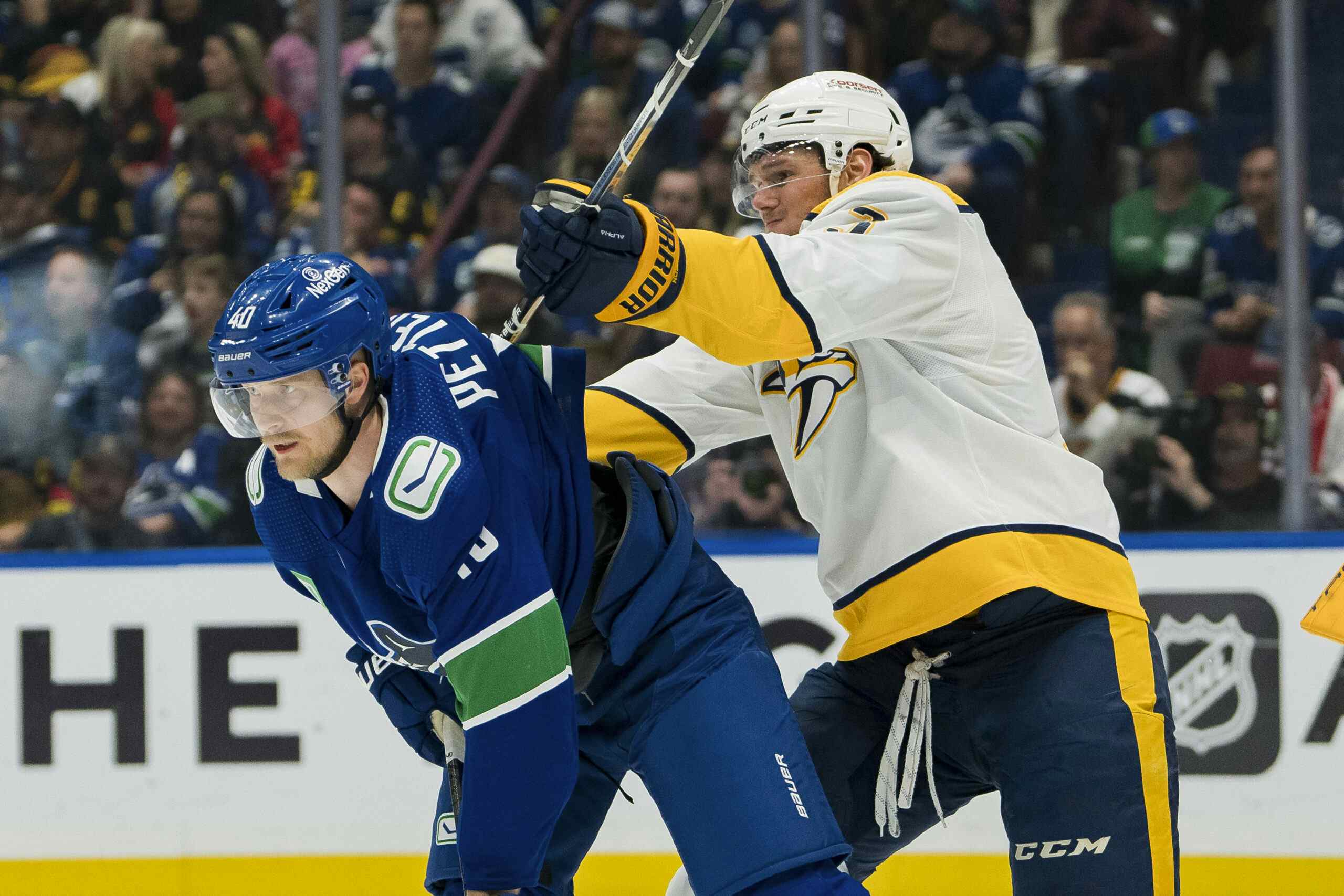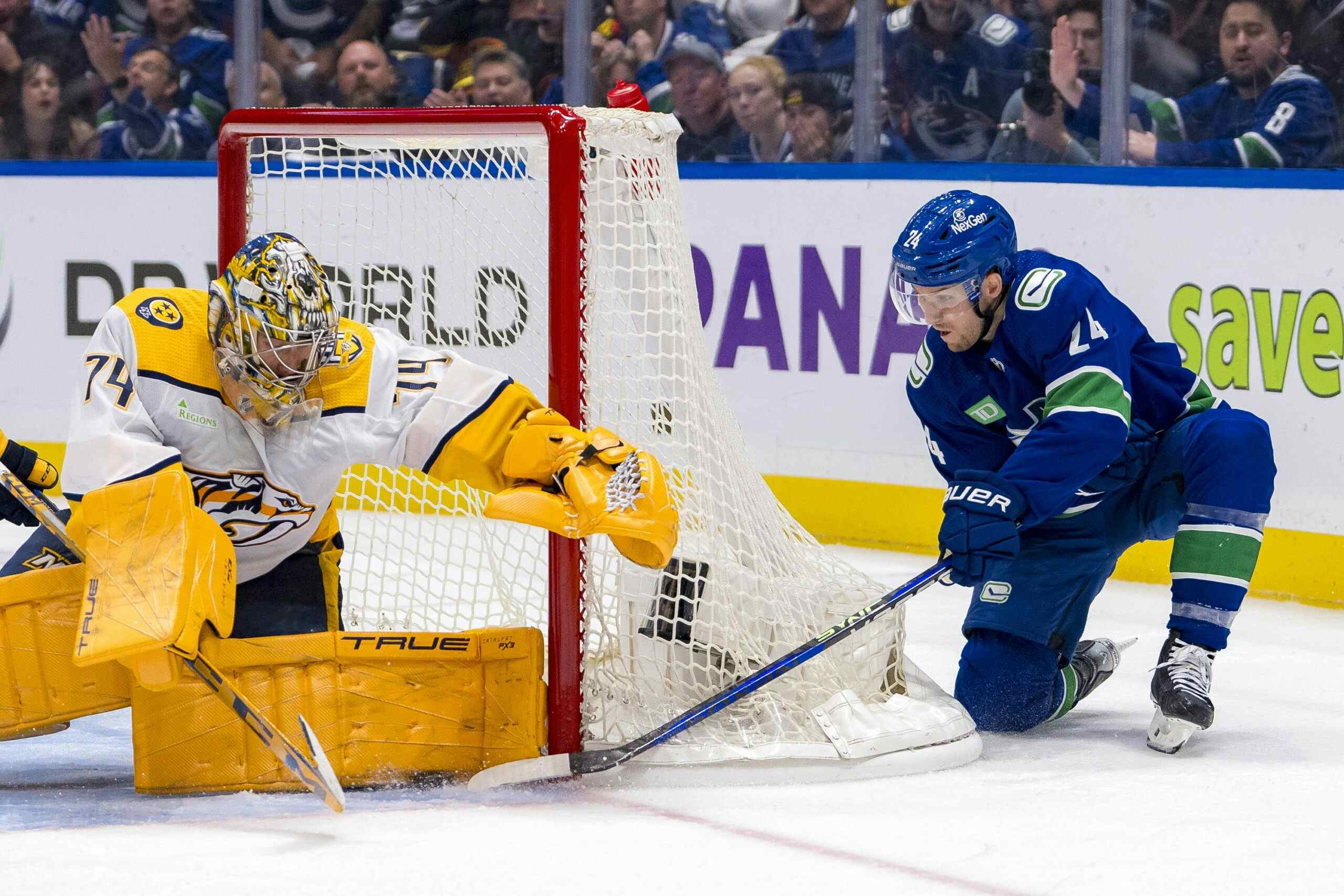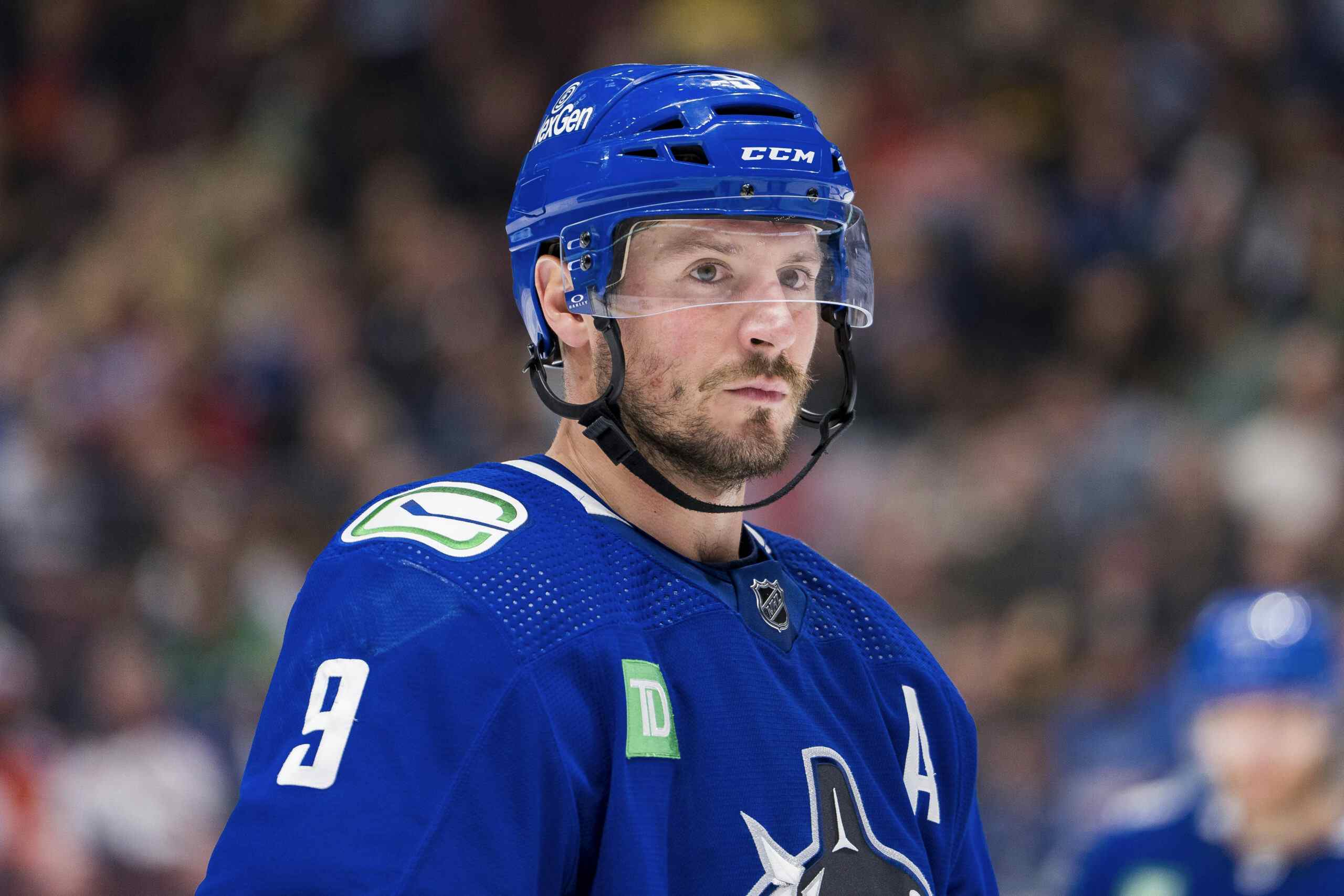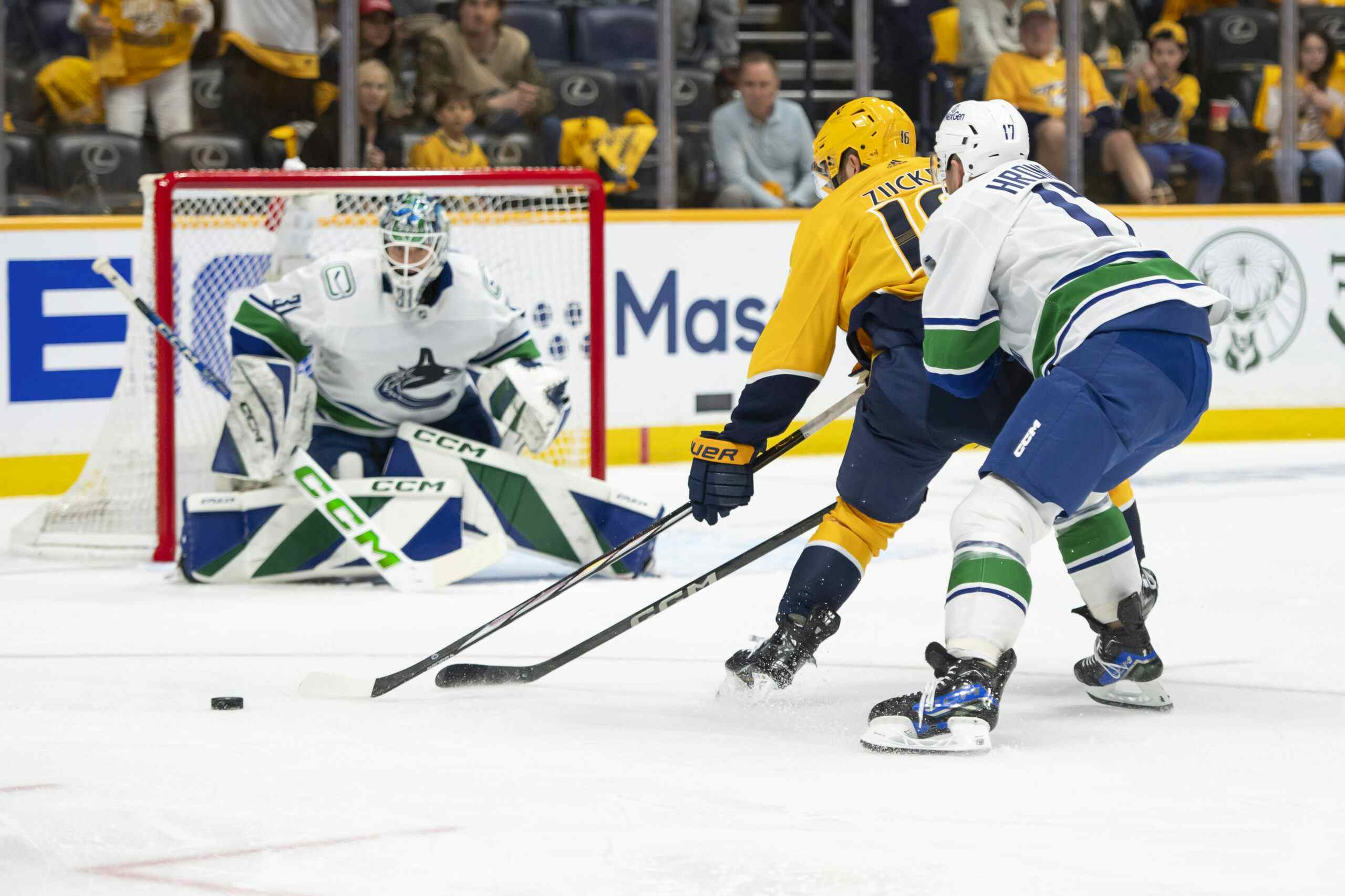Why Loui Eriksson Should Probably Stop Complaining About Travis Green

When it was announced that Loui Eriksson would be joining Elias Pettersson and Jacob Markstrom on Sweden’s entry into the 2019 World Hockey Championships, most fans hoped it would mean an opportunity for Eriksson to refresh his game to a degree—and perhaps even to rediscover his offensive spark. There were even those who hoped that the younger Pettersson would find time to “tutor” his veteran teammate over in Slovakia—and that Eriksson could then carry that momentum into the 2019/20 season.
Instead, Eriksson spoke to the press before the tournament even officially began and ignited yet another offseason controversy. Summertime drama is nothing new for fans of the Canucks—and really, this was a more likely outcome than Eriksson resurrecting his career. Still, his comments are surprising for a few reasons—not the least of which is how off-base his criticisms of coach Travis Green seem to be.
Loui’s Comments
Speaking to Swedish site HockeySverige, Eriksson noted that he and coach Travis Green don’t really get along as well as they could. Based on a translation of the interview, it seems that Eriksson said he and Green “don’t get on 100%,” but that they do “99%”—which doesn’t sound that bad. But then Eriksson specifically cited a lack of ice-time in the 2018/19, as well as a somewhat contradictory claim of both an inconsistent role and a role that was too defensive for his liking.
For the sake of completeness, Eriksson also spoke highly of Vancouver as a city and noted that he has still enjoyed his time as a Canuck. He also mentioned that he has no plans to retire. Still, it seems clear that he has some ongoing issues with the organization—and they seem to be focused primarily on the man behind the bench.
A History Of Travis Green’s Support Of Loui Eriksson
Travis Green’s support of Loui Eriksson is so well-known that it’s become a bit of a meme in the #Canucks community. Green’s talk of the “little things” Eriksson does on the ice has become a term of derision—both for Eriksson himself and the coach who insists on keeping him in the lineup.
Whereas Green hasn’t been shy to shred some of his players—mostly the Nikolay Goldobin-shaped ones—in the media, he’s been very careful to keep any negative comments about Eriksson to himself. This could be a sign of his respect for a veteran player, or it could be his recognition of Eriksson’s presumably shattered confidence.
In any case, Green has avoided commenting on Eriksson’s many shortcomings—and he’s always been sure to praise Eriksson whenever he manages to have a good game.
Even when Green finally chose to make Eriksson a healthy scratch in March, he handled the situation with kid gloves.
In other words, Eriksson might not have many supporters left in Vancouver—but coach Travis Green is undoubtedly one of them. If Eriksson can’t get along “100%” with Green, how would he handle a more critical coach? What would Eriksson make of a John Tortorella type? It’s tough to imagine a better scenario for Eriksson than to be coached by Green, and that makes it especially bizarre that he chose to throw Green under the bus.
The Reality
The Vancouver Canucks have paid Eriksson $23 million—mostly in signing bonuses—to score 32 goals and 76 points through 196 games. That’s a rate of 0.39 points-per-game. It’s also a rate of $719K per goal.
Is Eriksson’s deployment or role with the team to blame for his dismal offensive totals? Almost certainly not.
Take a look at Eriksson’s most frequent linemates for 2018/19.

It’s hard not to notice the prominence of offensive players on the list. Eriksson spent the final chunk of the season spending much of his time with Bo Horvat and Tanner Pearson—the same Horvat who ranked second on the team in scoring, and the same Pearson who scored at a great-than-30-goal-pace as a Canuck.
Eriksson’s ice-time was that of a middle-six forward, but he also received an average of 1:16 of powerplay time per game—more than names like Antoine Roussel, Troy Stecher, and Jake Virtanen. Five other forwards spent more time on the penalty kill than Eriksson. To be fair, Eriksson’s overall ice-time of 14:04 was a lower average than he’s used to—but that’s clearly a result of his poor play, not a cause.
His Zone-Start Ratio is about the same as Horvat and Roussel’s—both of whom found offensive success in 2018/19—and much better than that of players actually put into a defense-only role, like Jay Beagle, Tyler Motte, and Brandon Sutter. In other words, Eriksson certainly played a more defensive role than some other forwards on the team—but did he really expect to be given offensive opportunities in lieu of the Elias Petterssons and Brock Boesers of the team?
Moving Forward
Of course, it didn’t escape the notice of Canucks pundits that Eriksson’s comments came on the heels of Milan Lucic vaguely discussing the possibility of a trade to Vancouver.
Eriksson’s own comments were similarly cryptic, including a moment in that HockeySverige interview when he noted that, “As it looks now, I will play in Vancouver next season as well, but you never know what can happen. We’ll see what happens after the summer.”
Most would agree that trading Eriksson for Lucic—whose contract is longer than Eriksson’s, is essentially buyout-proof, and includes a No Movement Clause that would require him to be protected in an expansion draft—would be bad asset management. Unless the Oilers were willing to compensate the Canucks rather generously for making the swap, it’s not a move that should be considered seriously.
That being said, it does seem that Eriksson’s comments leave the door open for some sort of exit from the team—whether that be in the form of a trade, a future buyout, or some other method. Most fans who have watched Eriksson play for the last three seasons would not be sad to see him go—but they might be devastated at what the Canucks have to give up to get rid of him.
Until that happens, Eriksson would do well to keep his anti-Green comments to himself—and be glad he has a coach who is willing to support a player that is clearly not living up to their contract.
In February, Green told The Province that “The one thing about Loui is he never complains about anything. You give him a role and he’s happy to do it.”
The irony is palpable.
Recent articles from Stephan Roget





